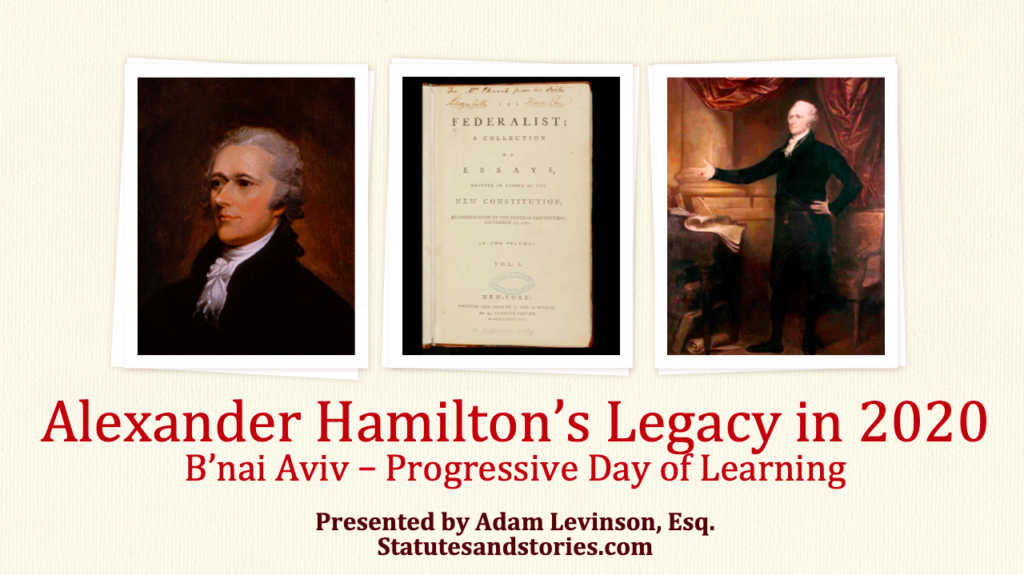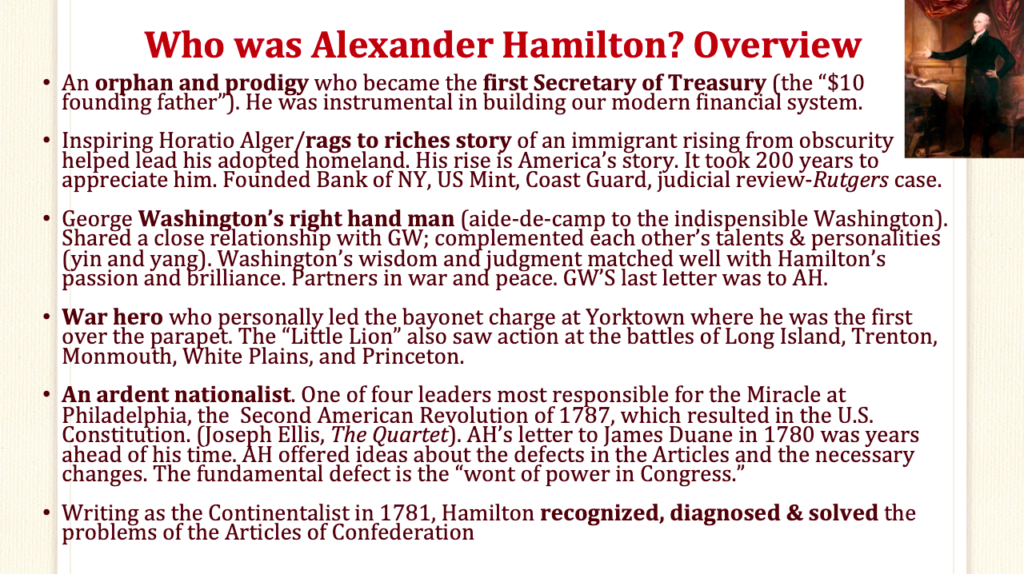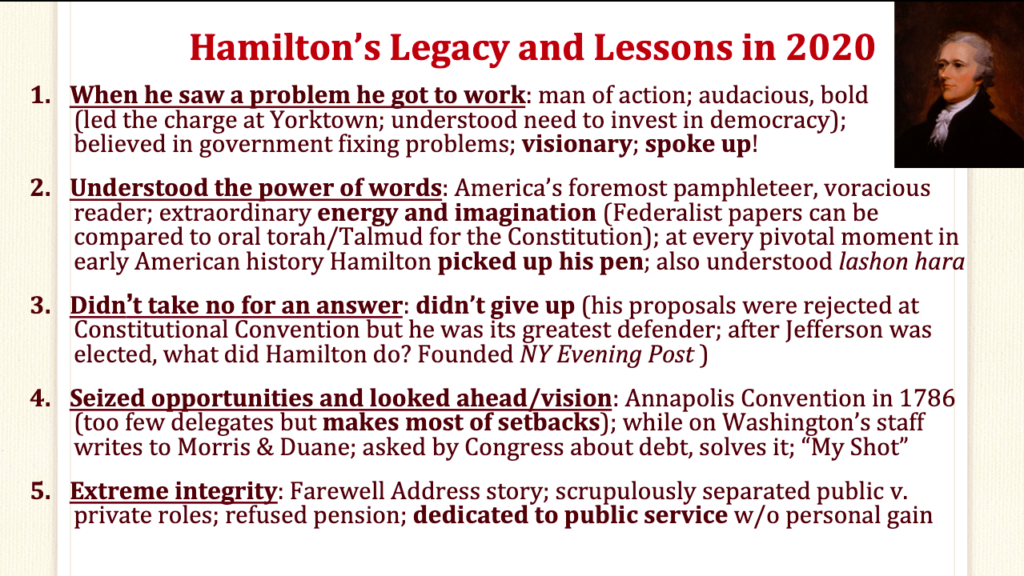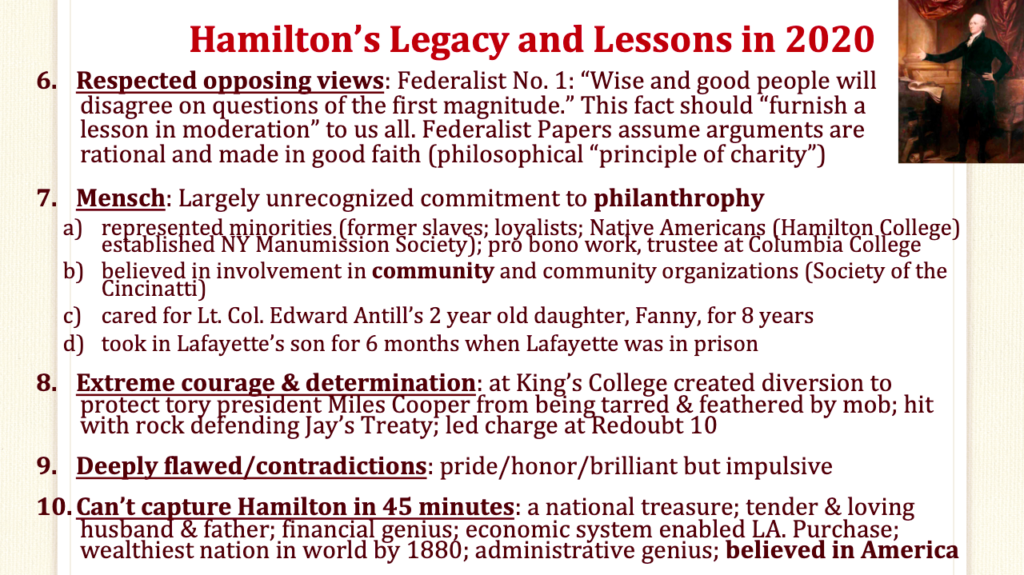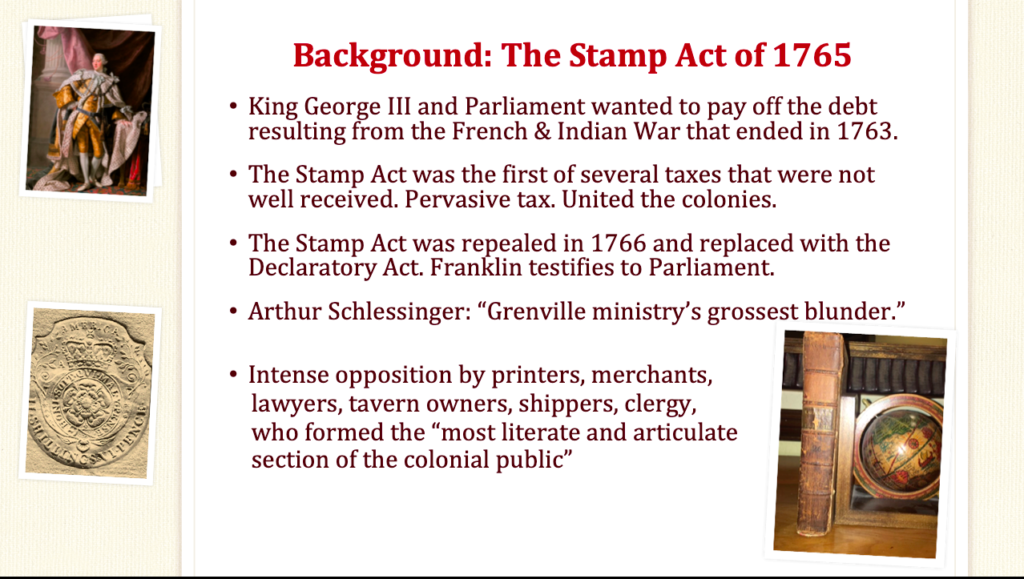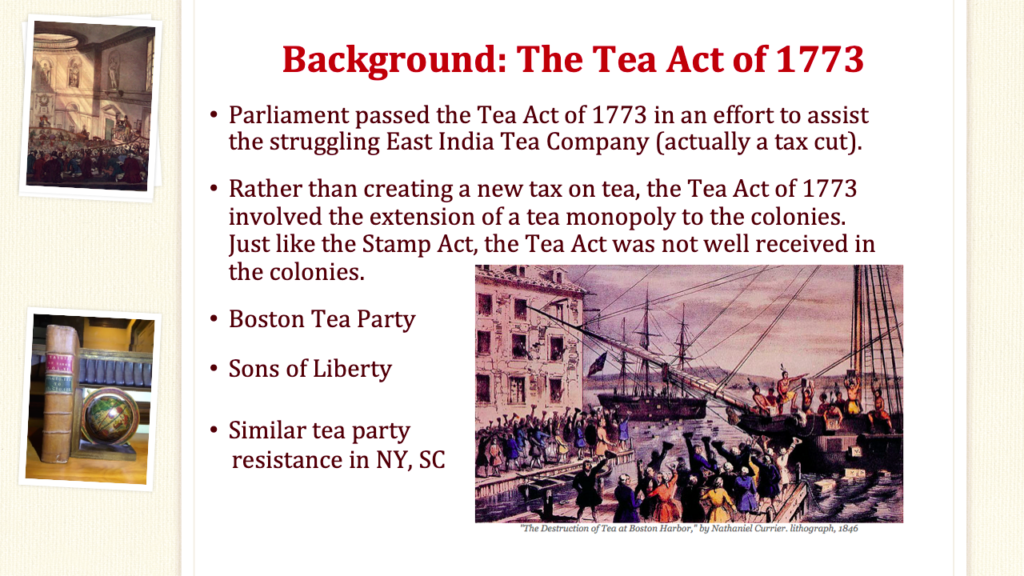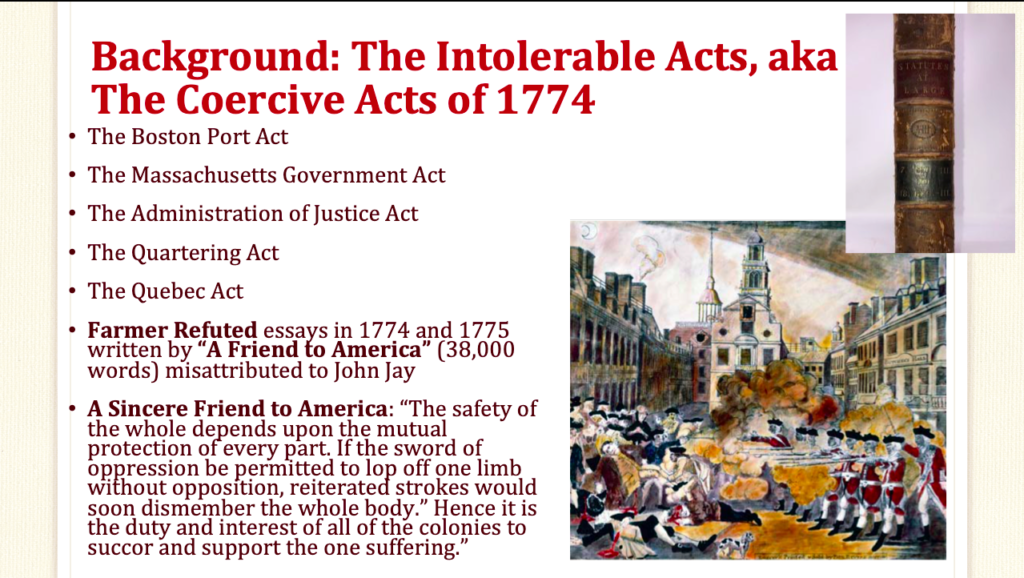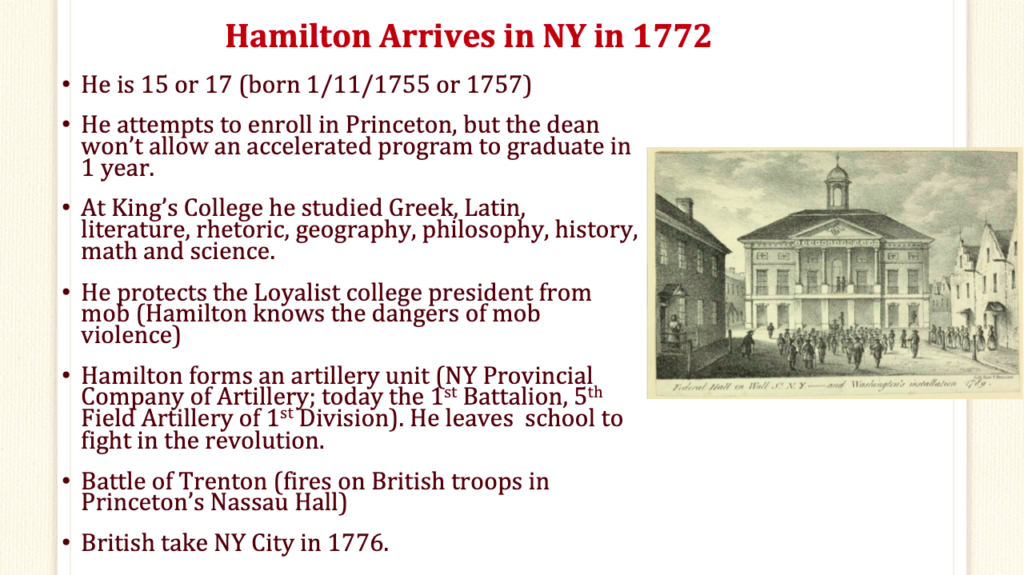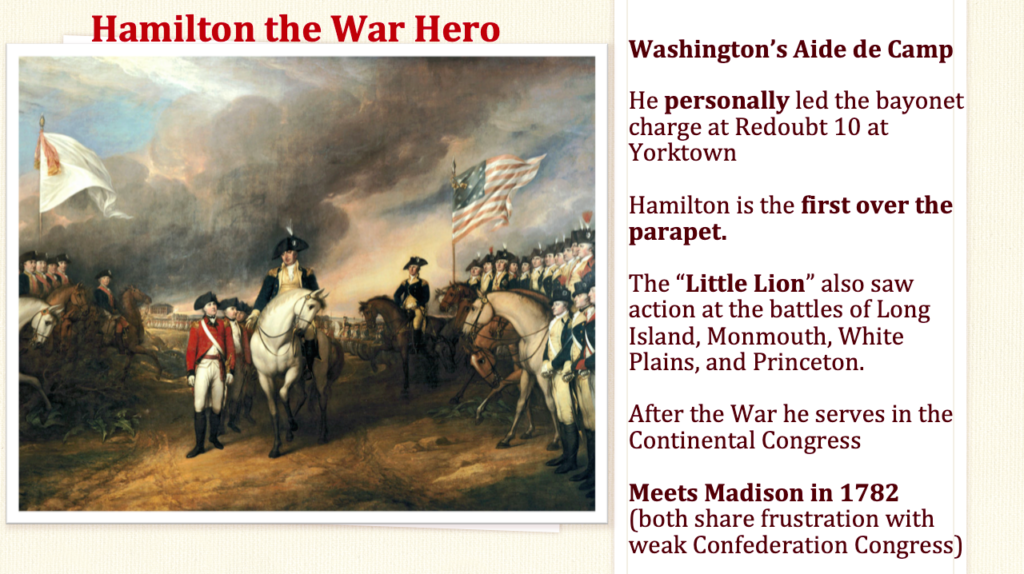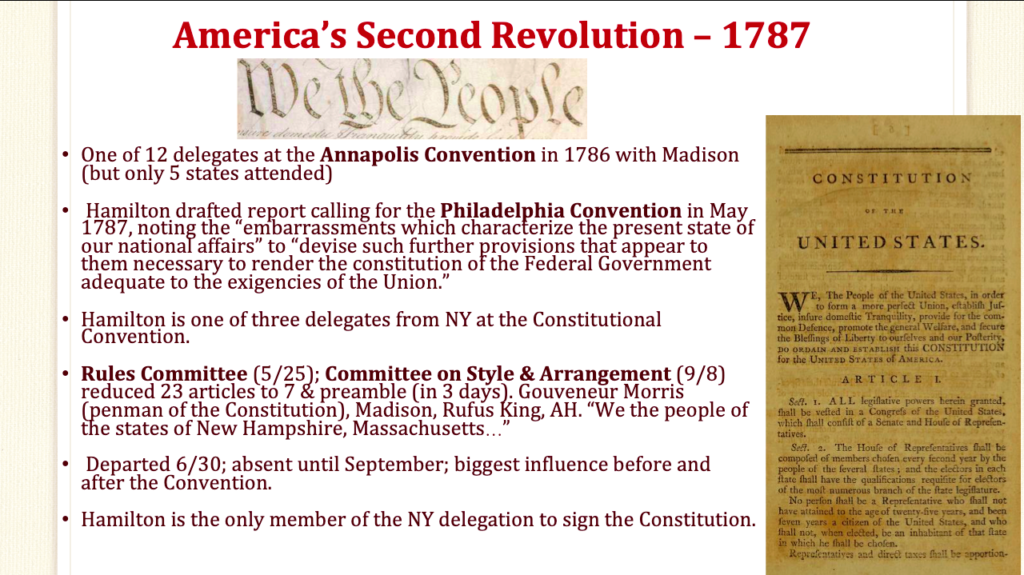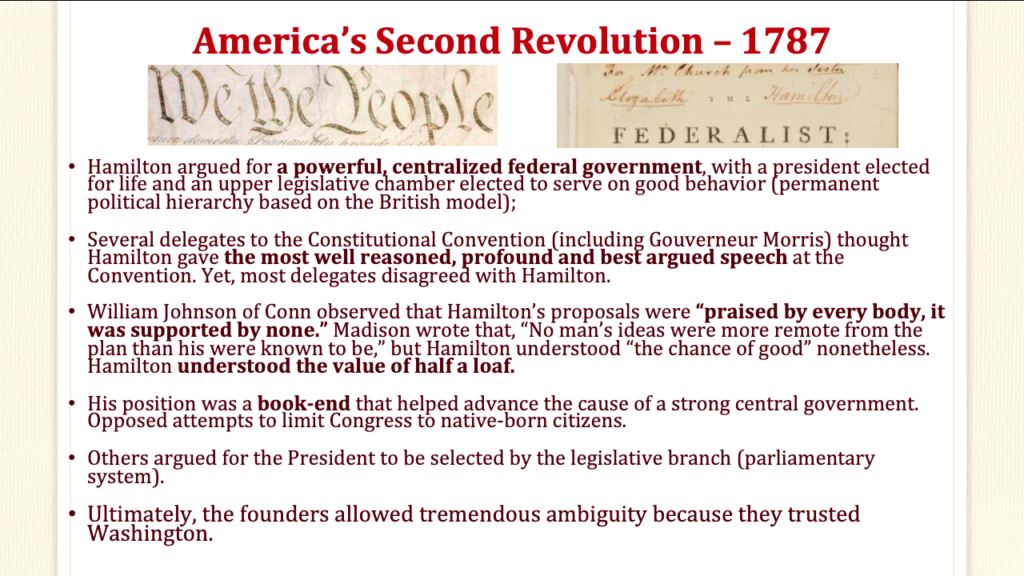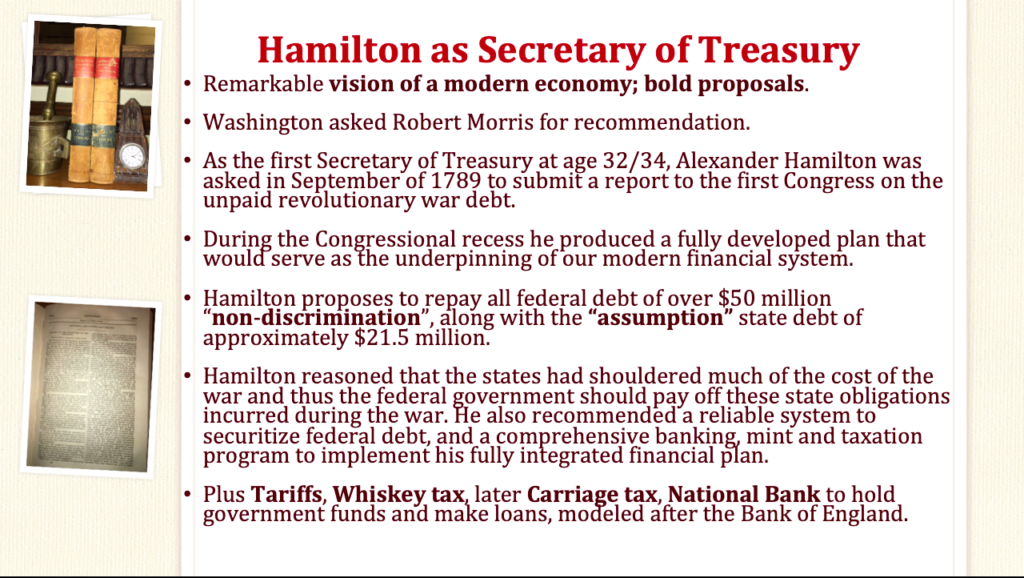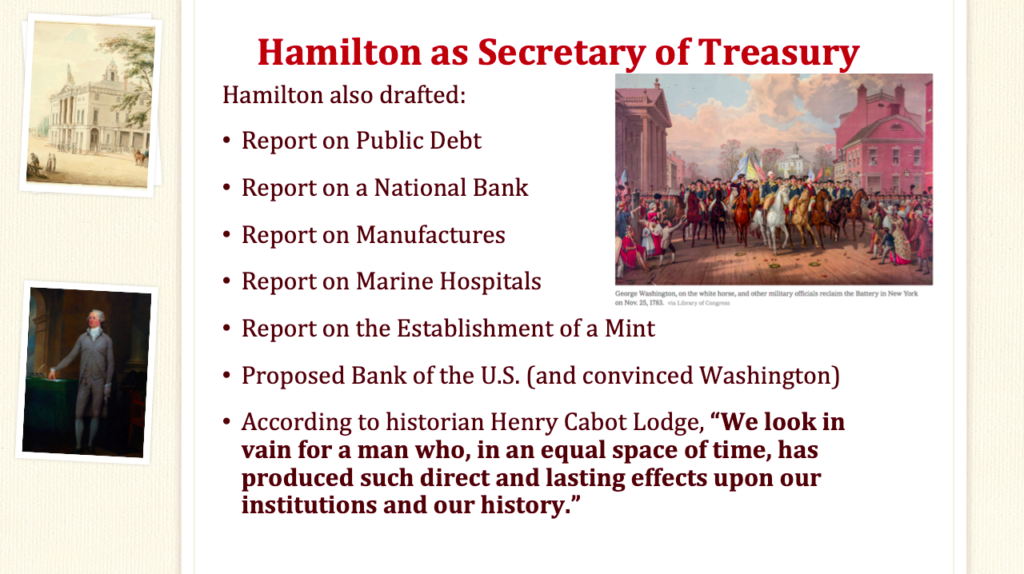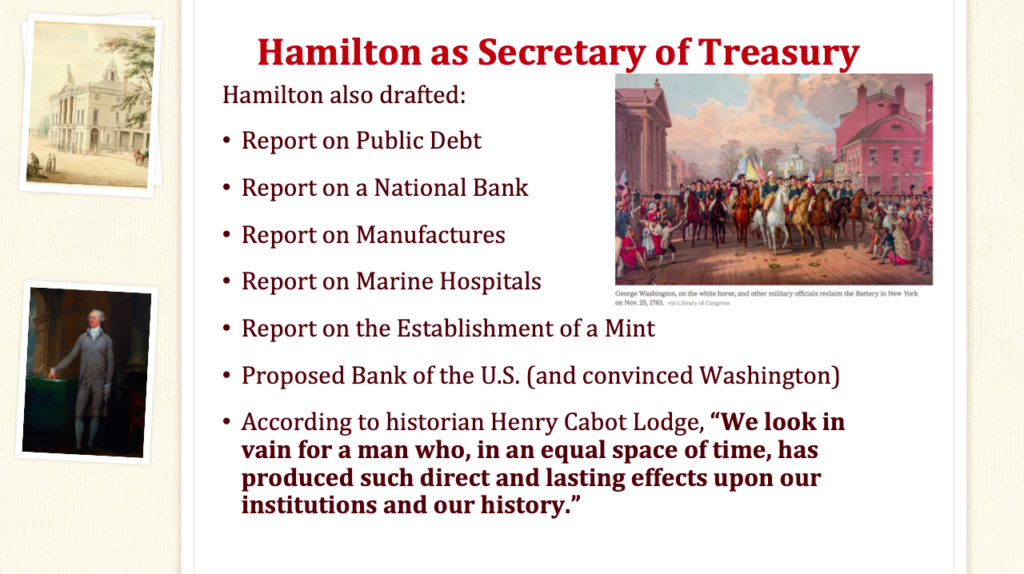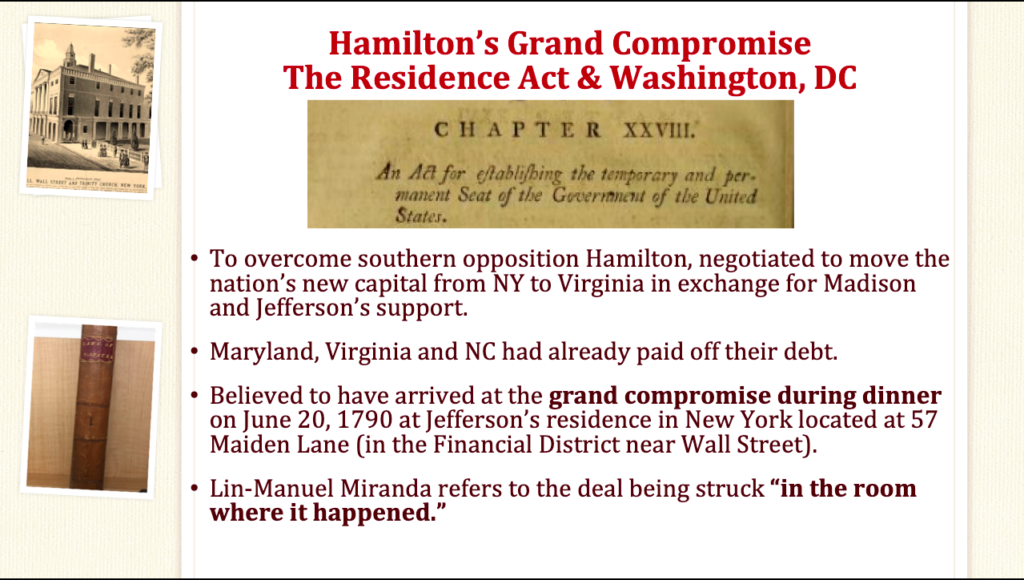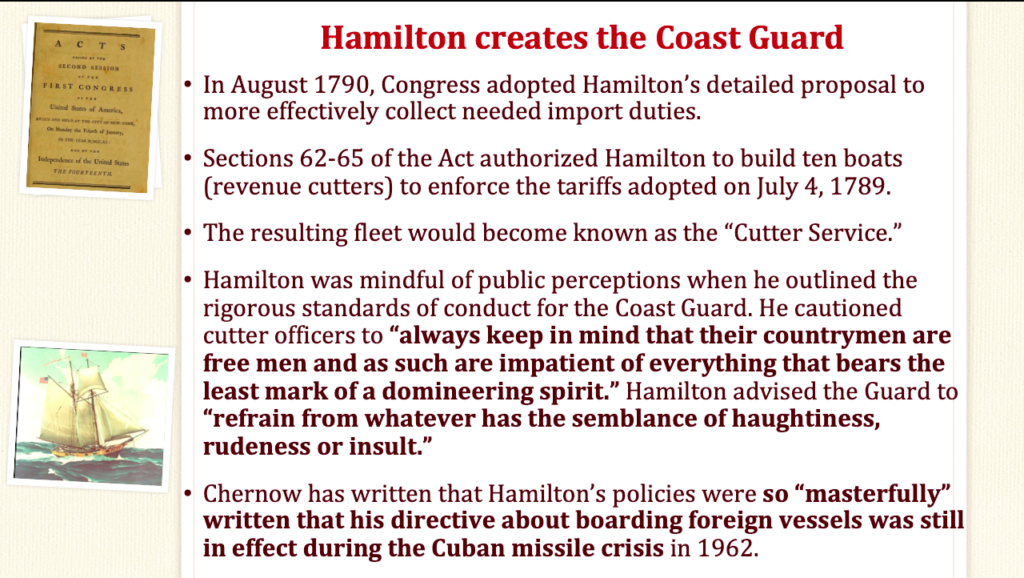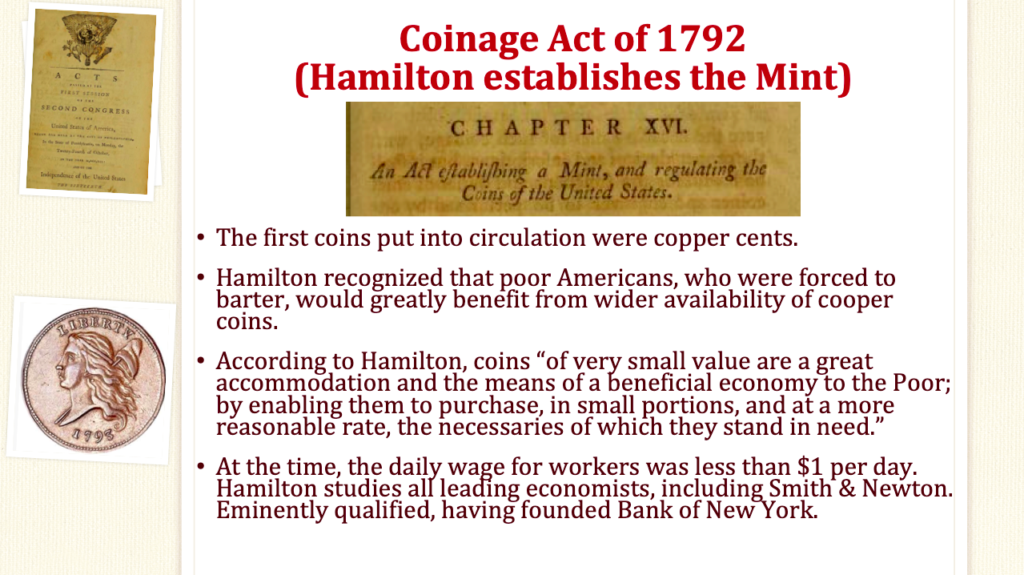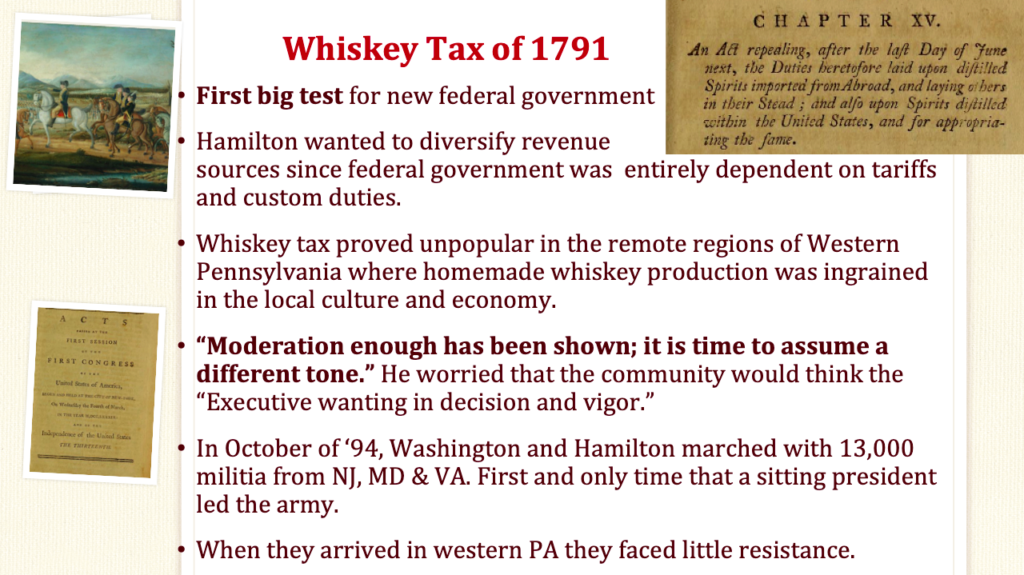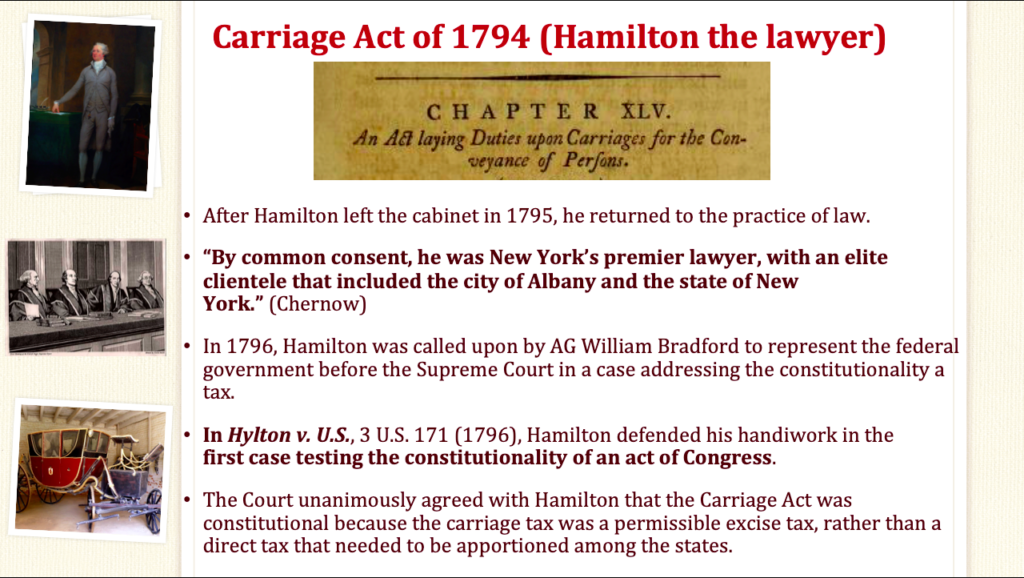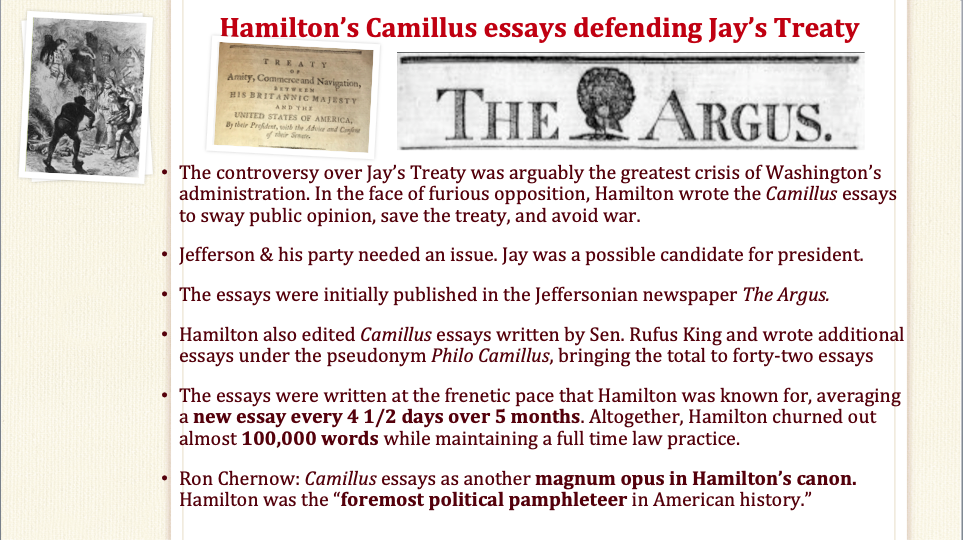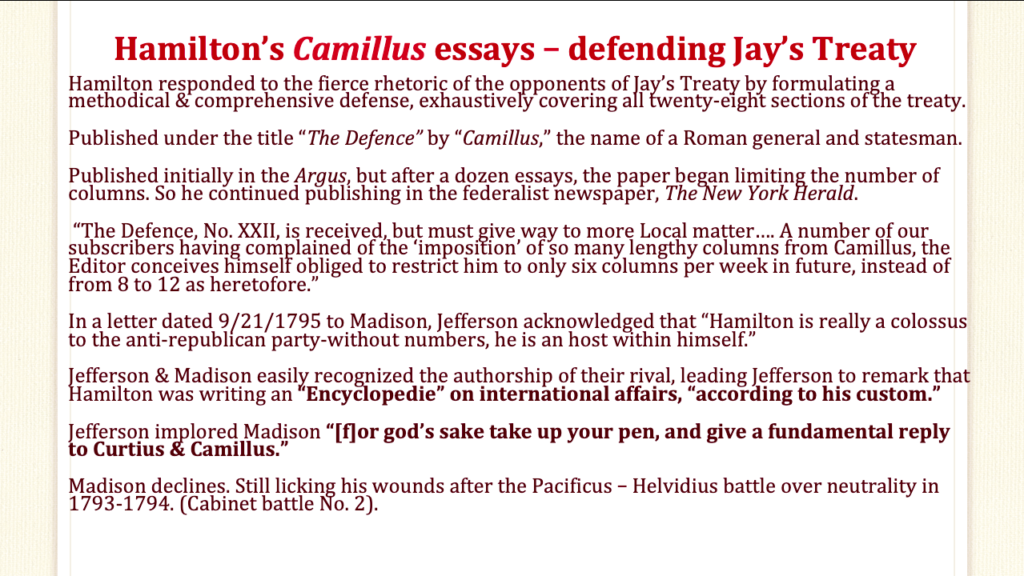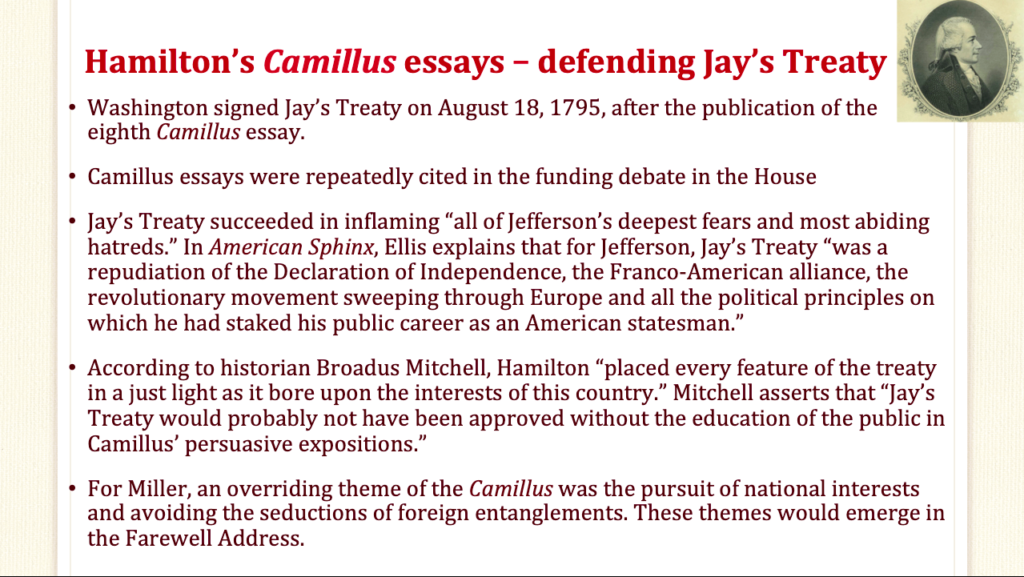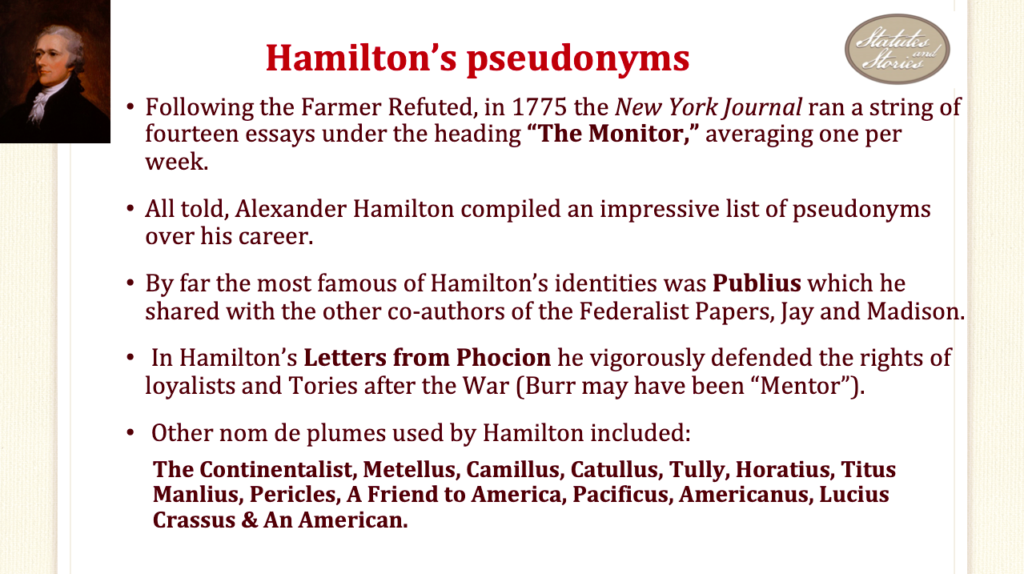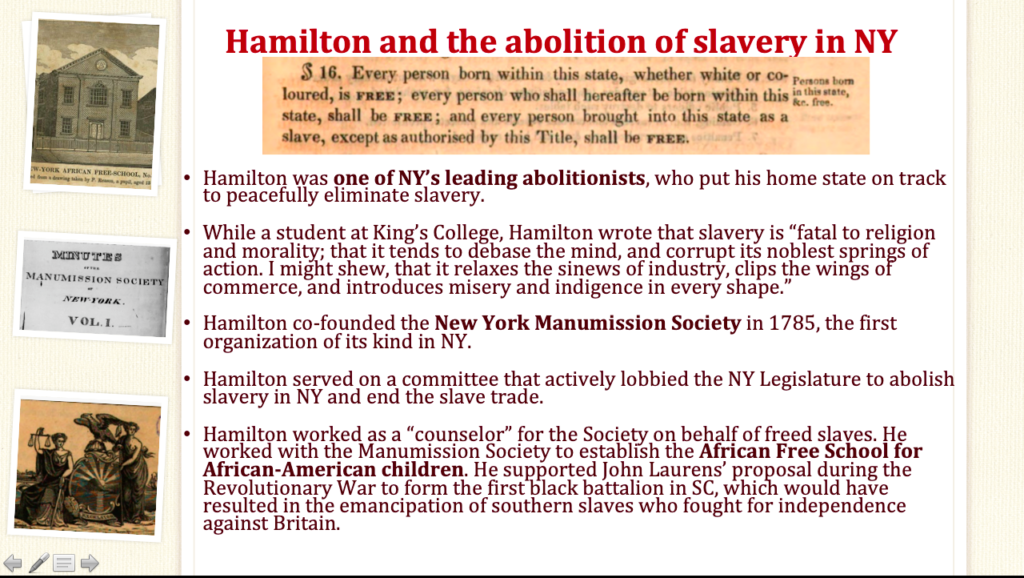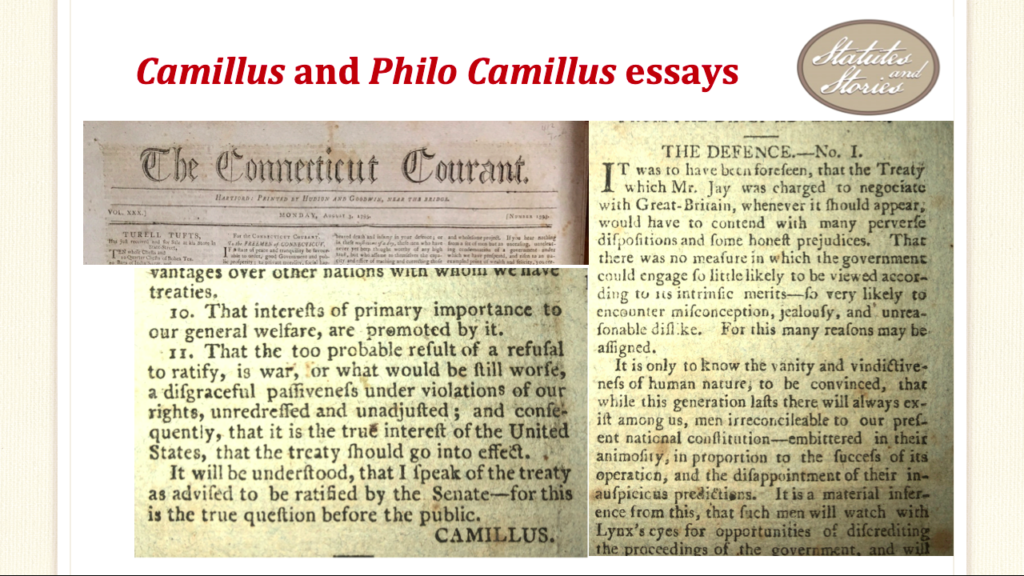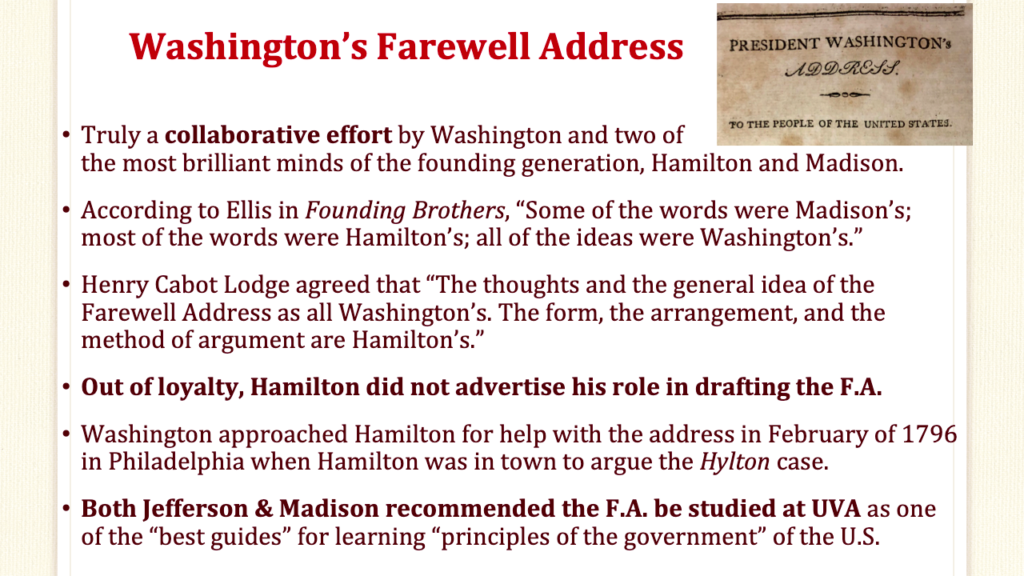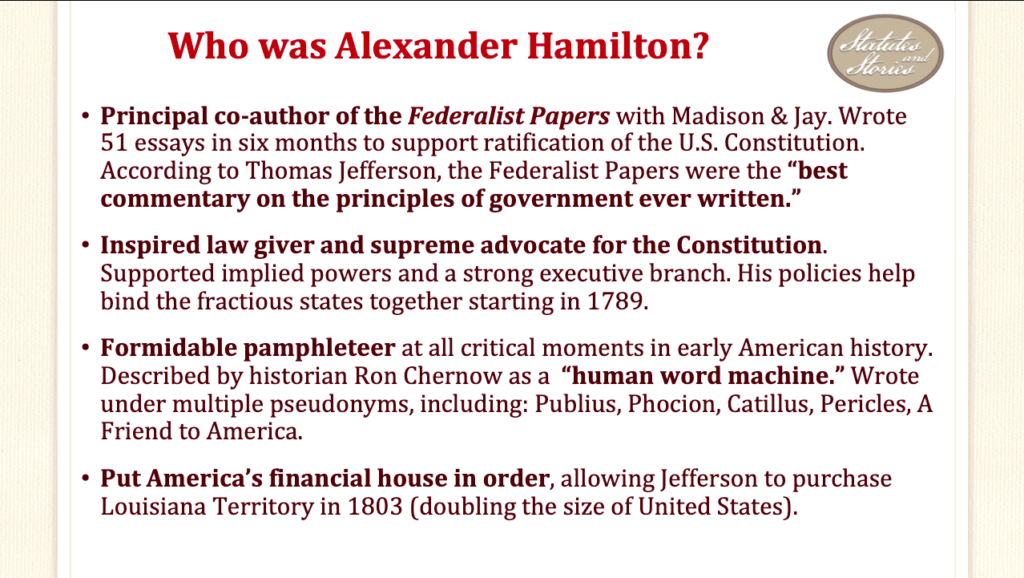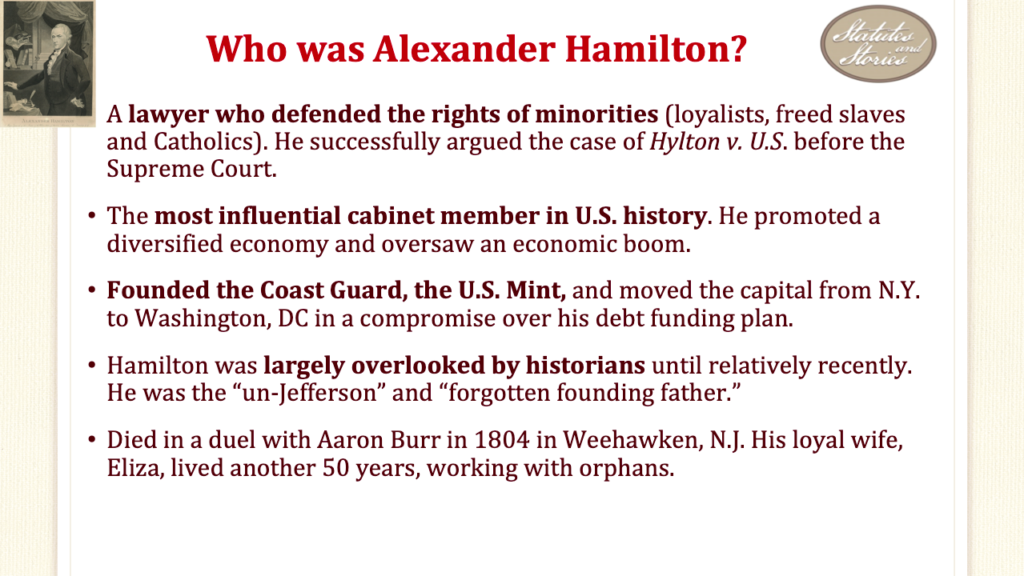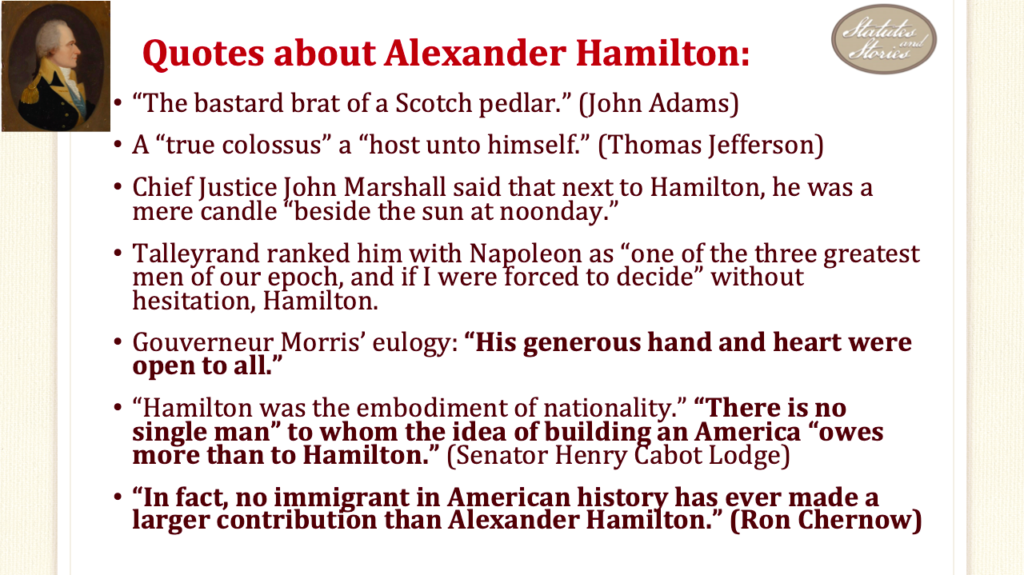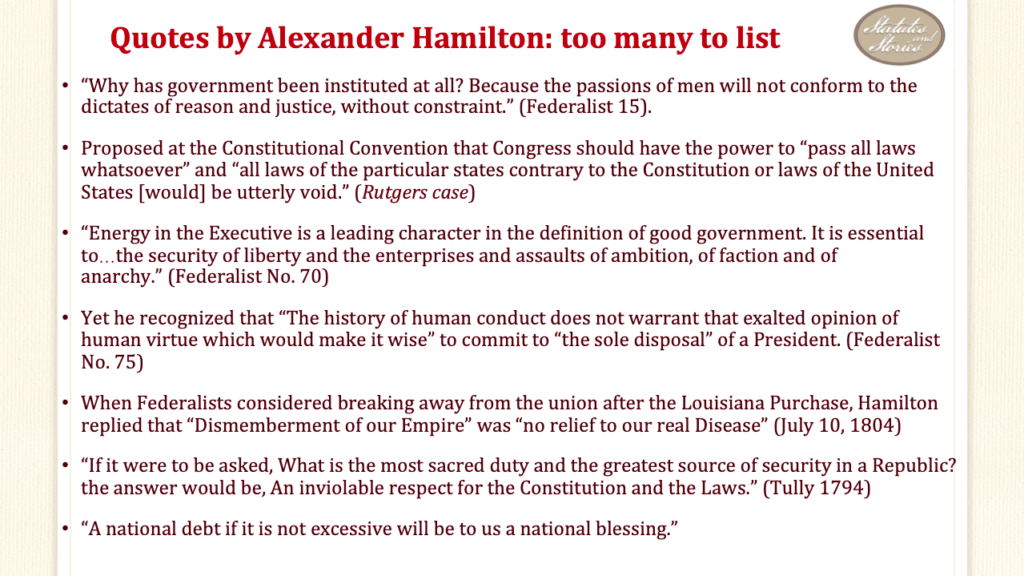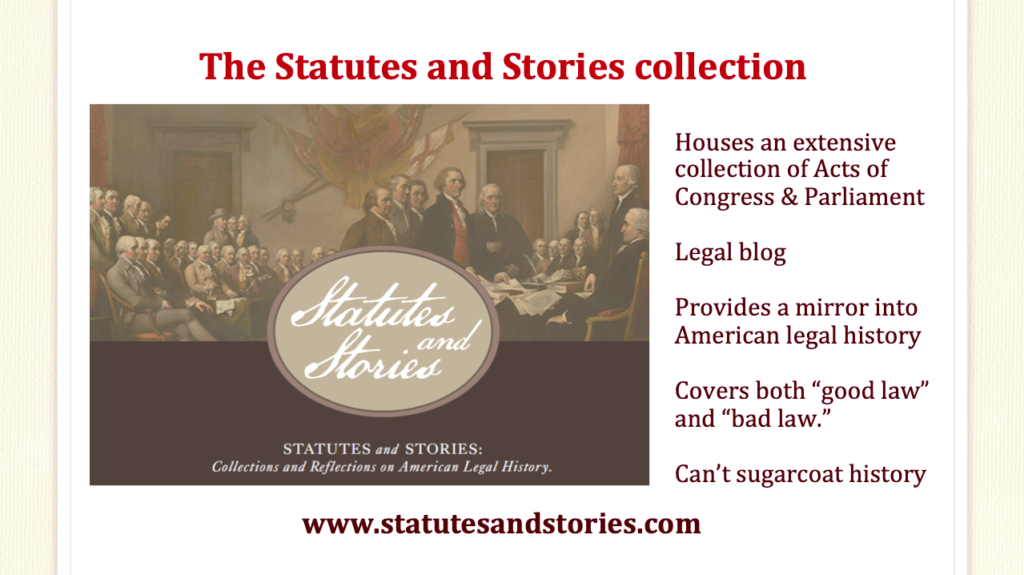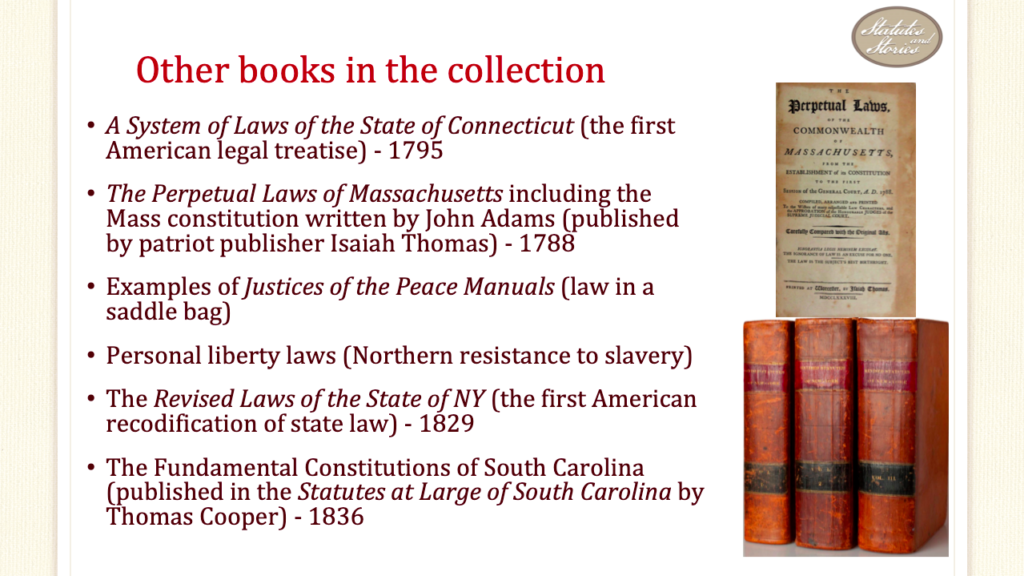The following presentation was created to answer the question, what does Hamilton’s legacy mean in the year 2020? In other words, we know of the monumental achievements and nation-building accomplished by Hamilton in the late 18th century, but what does this legacy mean in the year 2020? What can we learn from Hamilton today?
The following presentation distills Hamilton’s “legacy” into 10 lessons. Admittedly this effort is incomplete, as is always the case with any summary Powerpoint presentation. Nevertheless, the continuing responsibility of remaking and renewing democracy continues in every generation.
Hamilton’s lessons for the year 2020
- When he saw a problem he got to work: Hamilton was a man of action; he was audacious and bold. He led the charge at Yorktown. He understood the need to invest in democracy. He believed in government fixing problems. He was a visionary. He spokeup!
- Understood the power of words: Hamilton was America’s foremost pamphleteer. He was also a voracious reader. He possessed extraordinary energy and imagination (Federalist papers can be compared to oral torah/Talmud for the Constitution). At every pivotal moment in early American history Hamilton picked up his pen. He also understood lashon hara.
- Didn’t take no for an answer: Hamilton didn’t give up. Although the majority of his proposals were rejected at Constitutional Convention, he was the Constitution’s greatest defender when he shepherded the Constitution through the ratification process. After Jefferson was elected President, what did Hamilton do? Rather than treating the Federalist defeat as a failure, he founded the NY Evening Post to continue the job of participatory democracy.
- Seized opportunities and looked ahead/vision: During the Annapolis Convention in 1786 there were too few delegates to revise the Articles of Confederation. Yet, Hamilton seized the moment to propose another Convention the following year in Philadelphia and drafted the motion. Thus, he made the most of setbacks. While on Washington’s staff Hamilton wrote to Morris & Duane to sketch out his proposals to build a nation after the War. When he was asked by Congress to report about the national debt, he not only produced an exhaustive accounting of the nation’s finances. He made novel and ambitious recommendations which would solve the debt crises and restore national credit. His motto is truly reflected by Lin Manuel’s song, “My Shot.”
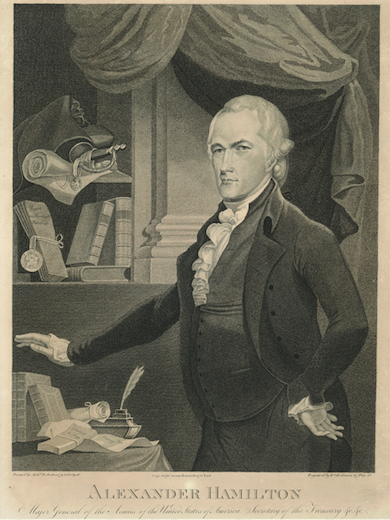
- Extreme integrity: During his life, Hamilton kept secret the fact that he was a principal drafter of Washington’s Farewell Address. Only after his death did his wife Eliza obtain proof of Hamilton’s authorship. Hamilton’s integrity is also evidenced by the fact that he scrupulously separated public v. private roles. As Secretary of Treasury he refused a generous military pension. He was dedicated to public service without personal gain.
- Respected opposing views: Federalist No. 1: “Wise and good people will disagree on questions of the first magnitude.” This fact should “furnish a lesson in moderation” to us all. The Federalist Papers assume arguments are rational and made in good faith (philosophical “principle of charity”).
- Mensch: Hamilton’s commitment to philanthrophy & education was largely forgotten to history. He represented minorities even though doing so was not helpful to his career. His clients included former slaves, Catholics, Jews and unpopular British loyalists. He co-founded the New York Manumission Society. He helped establish what became Hamilton College to educate Native Americans. After the Revolutionary War he served as a trustee to help re-build the former King’s College as the new Columbia University. In addition to his pro bono work, he believed in involvement in community and community organizations, including the Society of the Cincinatti. He cared for Lt. Col. Edward Antill’s 2 year old daughter, Fanny, for 8 years and took in Lafayette’s son for 6 months when Lafayette was in prison.
- Extreme courage & determination: Prior to the Revolutionary War Hamilton heroically created a diversion at King’s College to protect its tory president Miles Cooper from being tarred & feathered by a mob. He was pelted with rock while defending Jay’s Treaty. He personally led the bayonet charge at Redoubt 10 during the Battle of Yorktown.
- Deeply flawed/contradictions: Hamilton can be criticized for his pride and dedication to 18th Century notions of “honor.” He was brilliant but impulsive. Some might argue he was “too” brutally honest in his criticism of Aaron Burr and John Adams.
- Can’t capture Hamilton in 45 minutes: His letters to his family demonstrate that he was a tender and loving husband and father. He was a national treasure. He was financial genius. His economic system enabled the Louisiana Purchase in 1803. The U.S. became the wealthiest nation in the world by 1880, following the course that Hamilton envisioned. He was an administrative genius who believed in America.
